





Consulting
Forensic
Fraud
Infringement Damages

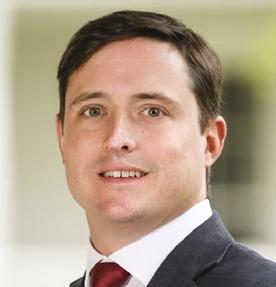
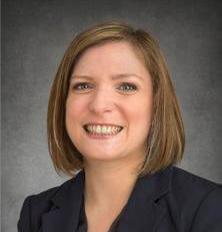
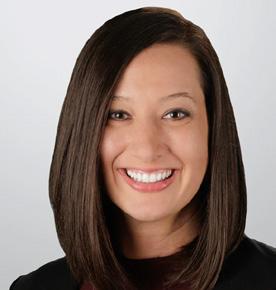

Tamra Harris


TDLA
hspragins@hickmanlaw.com
DRI
h.lowe@farmersinsurance.com
Manier
tharris@manierherod.com
GABI
Manier
gjackson@manierherod.com

HANK SPRAGINS is a partner with the Hickman, Goza & Spragins firm in Memphis, TN and Oxford, MS. His practice is devoted to civil litigation that addresses a myriad of disputes that are either trial or appellate related. He handles torts relating to death and injury, products liability, class actions in both federal and state courts, as well as suits against insurance companies relating to bad faith and contract disputes. He may be reached at hspragins@hickmanlaw.com.
025 has the TDLA off to another great year. With this publication of The Journal, I get the chance to highlight some of the organization’s conferences, CLE, publications, and remind members that the TDLA can provide assistance with expert witnesses or amicus help, among others.
This year saw TDLA’s first ever deposition academy, and it was a huge success (attendee registration was full within a day of launch). Hosted virtually, the academy was aimed at young lawyers and covered the ins and outs (and before and after) of party, witness and expert depositions.
TDLA’s Next Gen Webinar series, which offers remote-based, one-hour CLE sessions, continues to be well-attended and well-received. In 2025, the TDLA continues provide its members with Next Gen webinars throughout the year focusing on relevant civil defense-based topics.
June 12-15, 2025, the TDLA partnered with our Alabama colleagues (Alabama Defense Lawyers Association) for their annual summer meeting at the Perdido Beach Resort in Orange Beach, Alabama. As before, this summer conference offered a true mix of work and play, and it is a great opportunity to engage with other defense counsel in a relaxed setting. In addition to great food, fellowship and beautiful beaches, attendees got up-to-date CLE on topics such as free speech claims, fire investigation and artificial intelligence.
August 27-29, 2025, the TDLA will host its annual meeting in Nashville, Tennessee. This year, our Kentucky colleagues (Kentucky Defense Counsel) will join us. The team has put together a fantastic agenda, and the conference will be a great opportunity for us to gather to discuss important issues to membership, in addition to enjoying all that the Music City has to offer.
We continue to be grateful for our young lawyers across the state. Many from firms across the state have stepped up in leadership roles within our organization by chairing/co-chairing conferences, serving on state bar committees and by writing articles for our Journal.
As always, we continue to have strong support from our sponsors. Please thank our sponsors for helping us offer programming to our membership throughout the year and helping with our conferences. The TDLA could not provide what it does without them.
There are great opportunities to engage with TDLA this year. We hope to see and hear from you soon and often. This year, I encourage you to be active and involved and to take advantage of what TLDA has to offer – so we can continue to be the voice for the defense bar in Tennessee.
Hank Spragins President
In May 2025, DRI came to Nashville for the Employment and Labor Law and Drug and Medical Device seminars, as well as DRI and State and Local Defense Organization (SLDO) leaders from around the United States and Canada for DRI regional meetings. TDLA was happy to welcome DRI to Nashville and participate in those meetings. TDLA young lawyer leaders Gabi Jackson (Manier Herod, Nashville) and Grace Benitone Burnett (Rainey Kizer, Nashville) participated in a panel speaking to attendees about ways to recruit and engage with young lawyers. TDLA Board Member Rachel Bishop joined them to speak about the benefits of TDLA and SLDO membership to attendees of the Employment and Labor Law seminar.
I invite you to join me and TDLA leadership at the DRI Annual Meeting at the Chicago Marriott Downtown Magnificent Mile hotel in Chicago, Illinois, on October 15-17, 2025. We are looking forward to hearing from keynote speaker, investigative journalist and historian Bob Woodward, as well as dynamic and relevant CLE programming, including a panel discussing insights and strategies to address third-party litigation funding, strategies for interacting with Attorneys General, and insights on collaborating across legal and corporate roles.
There also promises to be lots of opportunities for networking with our colleagues in the defense bar, including the premier networking reception at the Shedd Aquarium. Find out more and register using this link: https:// www.dri.org/annual-meeting/2025 - and register by September 2, 2025 to lock in the lowest registration fee.
If you are not already a member of DRI, be sure to take advantage of DRI’s free DRI Membership program for eligible TDLA members. TDLA is participating in this program again this year, which gives a free one-year DRI membership to first time DRI members or former (lapsed) DRI members who have not had a DRI membership in at least 3 years. The program runs until the end
continued on page 13
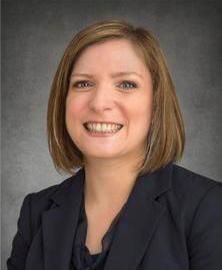
HANNAH LOWE has practiced insurance defense litigation since 2011 and currently works for Farmers Insurance Exchange Claims Litigation Department, Tennessee Branch Legal Office. Hannah is originally from England, but has lived in the United States since 2003. She graduated from the University of Tennessee College of Law in 2010. She may be reached at h.lowe@farmersinsurance.com
President Hal S. “Hank” Spragins Hickman, Goza & Spragins hspragins@hickmanlaw.com
President Elect Chris Frulla Rainey, Kizer, Reviere & Bell cfrulla@ranieykizer.com
Secretary/ Rachel Bishop
Treasurer Permobil rachel.bishop@permobil.com
Immediate Past
President Michael Haynie Manier & Herod mhaynie@manierherod.com
DRI State Rep Hannah Lowe Farmers Insurance h.lowe@farmersinsurance.com
Director I Sean W. Martin Carr Allison swmartin@carrallison.com
Adrienne Fazio Manier & Herod afazio@manierherod.com
Kenneth D. Veit Leitner, Williams, Dooley & Napolitan kenny.veit@leitnerfirm.com
Divisional
Directors Ken Ward Trammell, Adkins and Ward kward@tawpc.com
Christina Hadaway Liberty Mutual christina.hadaway@libertymutual.com
AJ Parker Rainey, Kizer, Reviere & Bell ajparker@raineykizer.com
Percy McDonald, Jr.* (1966-1967)
William E. Herod* (1967-1968)
Edward P.A. Smith* (1968-1969) Mac E. Robinson* (1969-1968)
James E. Leary* (1970-1971) William H. Woods* (1971-1972) Woodrow Norvell* (1972-1973) Hugh C. Gracey (1973-1974) Henry T. V. Miller (1974-1975) Paul R. Leitner* (1975-1976)
J. G. Lackey, Jr.* (1976-1977) R. Hunter Cagle* (1977-1978) E. Blake Moore (1978-1979) Richard D. Taylor* (1979-1980) E. Riley Anderson* (1980-1981) C. Arnold Cameron* (1981-1982)
James H. Camp* (1982-1983)
Thomas A. Williams (1994-1995) Kenneth R. Shuttleworth (1995-1996) Michael E. Evans (1996-1997) Brian H. Trammell* (1997-1998) Dale H. Tuttle (1998-1999) Katherine “Kitty” Boyte (1999-2000) Gary S. Napolitan (2000-2001) Joseph R. White (2001-2002) Gary R. Wilkinson (2002-2003)
Steve A. Dix (2003-2004)
Rebecca Brake
Murray (2004-2005)
James E. Moffitt (1983-1984) W. Ferber Tracy (1984-1985) James M. Doran, Jr. (1985-1986) George S. Petkoff (1986-1987) W. Ritchie Pigue (1987-1988) L. Anderson Gaylon III* (1988-1989) J. Minor Tait, Jr.* (1989-1990) Terry L. Hill (1990-1991) Joseph C. Wilson, III (1991-1992) Gary K. Smith (1992-1993) Michael J. Philbin* (1993-1994)
David J. Deming (2005-2006)
Raymond S. Leathers (2006-2007)
Robert G. Norred (2007-2008) C. Douglas Dooley (2008-2009)
Stephen P. Miller (2009-2010)
Melanie M. Stewart (2010-2011)
Robert A. Crawford (2011-2012)
John W. Barringer, Jr. (2012-2013)
Bradford D. Box (2013-2014)
James H. Tucker, Jr. (2014-2015)
Catherine C. Dugan (2015-2016)
Barret S. Albritton (2016-2017)
Michael Mansfield (2017-2018)
Lynn V. Lawyer (2018-2019)
Rockforde D. “Rocky” King (2019-2020)
Heather H. Douglas (2020-2021)
Dawn Carson (2021-2022)
Hannah Lowe (2022-2023)
Michael Haynie (2023-2024)
* Deceased
It’s no secret the U.S. Department of Justice (“DOJ”) prioritizes waste, fraud, and abuse. Last year alone, DOJ recovered more than $2.9 billion in False Claims Act (“FCA”) settlements and judgments. And it’s not slowing down. On May 12, 2025, DOJ released a memorandum reinforcing its “laser-focus” on a catalogue of white collar crimes. And at the top of the list? Healthcare fraud.
DOJ outlines three core tenants of enforcement authority for its Criminal Division: focus, fairness, and efficiency.
DOJ is “laser-focused” on what it considers to be the most urgent criminal threats to the country. Exploitation of government programs resulting in waste, fraud, and abuse are at the forefront. DOJ explains that “Rampant health care fraud and program and procurement fraud drain our country’s limited resources. Corporations and individuals defraud important government initiatives, including Medicare, Medicaid, defense spending, and other programs intended to assist vulnerable citizens.”
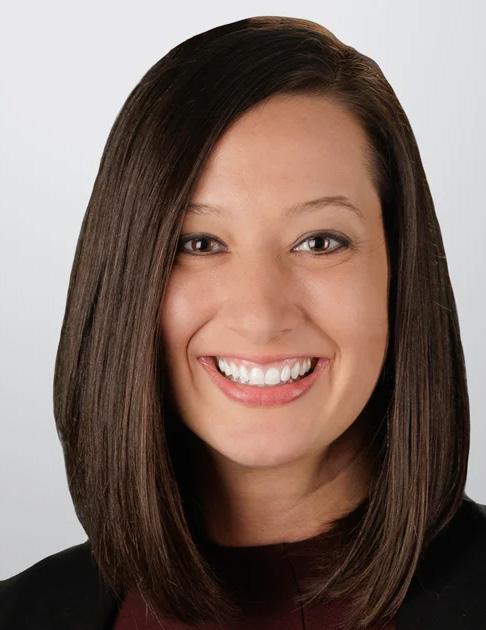
TAMRA HARRIS is a healthcare attorney at Holland & Knight, guiding hospital systems, medical device companies and other health entities through complex enforcement actions, investigations, and compliance efforts. Ms. Harris’ areas of focus include the False Claims Act (FCA), Anti-Kickback Statute (AKS), Stark Law, and the U.S. Food and Drug Administration (FDA). She may be reached at tamra.harris@hklaw.com.
When deciding whether to charge corporations, DOJ’s Criminal Division must consider whether the company self-reported its conduct, the company’s willingness to cooperate with the government, and its actions to remediate the misconduct. Justice Manual (JM) 9-28.300.
DOJ understands that investigations can be expensive, intrusive, cause reputational harm, and can interfere with day-to-day operations. This can be particularly challenging for healthcare entities. Prosecutors are instructed to move swiftly to investigate and make charging decisions.
As a defense attorney, how can you best support your healthcare clients given DOJ’s stated priorities? Proactive regulatory and compliance efforts are a must to ensure effective processes and billing practices, hence reducing the risk for mistakes and claims of healthcare fraud.
Healthcare entities are subject to countless regulatory requirements that must be implemented and monitored for updates. It is critical to keep watch over company policies and make any necessary changes, particularly as regulatory requirements evolve. Once company policies are carefully drafted, employee training helps ensure that the policies will be understood

and followed. This can also provide an outlet for employees to voice concerns or questions, which can and should be addressed early on, rather than down the road in defense of a whistleblower investigation. Clarity and effective communication win the day when it comes to regulations and operational processes.
To track success of company policies, internal audits can be conducted to track effectiveness and potential areas for improvement. Dashboards can also be created to track and analyze structured enterprise data. Each of these methods will lend insights as to any outliers—whether that is a certain facility, practitioner, region, or practice area. Perhaps company policies are implemented perfectly across the board, but you have one rogue practitioner who requires specialized training. Maybe practices differ in a certain region. And maybe the outliers you see are completely normal given your industry. These are the questions you’ll need to drill down into once you start monitoring compliance. These tools can not only improve efficiency but can keep healthcare entities in the driver’s seat when it comes to its own processes, billing practices, and overall compliance scorecard.
Even with the most robust compliance programs, healthcare entities often find themselves subject to government audits, investigations, or even litigation. In that instance, it is important to get to the root of the question as quickly as possible. Determine the issues the government may be raising or investigating. Perhaps a Civil Investigative Demand or Subpoena is issued asking for explanations and document productions in a few specific areas. Conduct an internal investigation to understand company processes and compliance with these processes. There may be an opportunity to present your findings to the government before a lengthy investigation is needed, saving both the healthcare entity and the government valuable time and resources.
On the other hand, perhaps you’ve identified areas for improvement. In this case, promptly implement any necessary policy changes, employee training, or other compliance measures needed to attain regulatory compliance. If possible, utilize enterprise data to identify problem areas, and more importantly, areas that are not problematic. This will help narrow the focus of the request
and can work to minimize disruption to critical healthcare services while the investigation is ongoing. The goal of both the healthcare entity and the government should be to resolve questions, confirm regulatory compliance, and ensure that resources are appropriately utilized.
While DOJ’s memorandum prioritizing healthcare waste, fraud, and abuse should not come as a surprise, it can be taken as a welcomed opportunity for new regulatory, compliance, and oversight implementation. Now is the time to make ready for successful interactions with government regulators, and in turn, ensure that healthcare entities can spend time focusing on what matters most— patients and the healthcare providers caring for them each day.
1 31 U.S.C. §§ 3729 – 3733
2 https://www.justice.gov/archives/opa/pr/falseclaims-act-settlements-and-judgments-exceed29b-fiscal-year-2024
3 https://www.justice.gov/opa/media/1400141/ dl?inline
Universities have long held that participation in athletics is an integral, yet voluntary, part of the college experience and that this participation does not amount to an occupation. However, mindsets are shifting.
College football games draw up to 100,000 in-person spectators and over five million television viewers. It rakes in revenue for universities, advertisers, sponsors, sports anchors, television networks, and referees. Everyone, down to the teenager slinging hot dogs at the concession stand, gets paid. Everyone except the players we all tune in to see.

GABI JACKSON is an associate with Manier & Herod practicing in workers’ compensation. She represents employers, self-insured employers, third-party administrators, and insurance carriers throughout Tennessee on the defense and resolution of their workers’ compensation claims. Ms. Jackson is currently a member of the Tennessee Defense Lawyers Association and serves as co-editor of the TDLA Journal Magazine. She may be reached at gjackson@manierherod.com.
As a life-long resident of the South, I have witnessed the almost reverent loyalty (and ample merchandise) a die-hard SEC fan has for their quarterback. Now, those branded water bottles, jerseys, and vanity plates could mean payday for college athletes. But could this shift result in a new classification for these players, not just as student-athletes but as employees?
The first case decision regarding whether college athletes are employees eligible for workers’ compensation concerned a college football player receiving $50 per month, meals, and housing in exchange for cleaning courts and shoveling snow, which was contingent on remaining on the football team. He sustained an injury during spring drills and filed a workers’ compensation claim. The Colorado Supreme Court determined that he was employed by the university and his football participation was integral to his employment. This established that student-employees can qualify for workers’ compensation. The NCAA quickly adopted the term “student-athlete” to legally distinguish athletes from university employees and avoid similar litigation.
NIL rights allow student-athletes to earn compensation through the use of their personal image to promote and represent brands through social medial or endorsements without being classified as employees. As the scope and structure of NIL deals grow, the line between athlete and employee is increasingly blurred. This is evidenced by Alston, the first NCAA case heard by the Supreme Court in over 40 years.
On March 31, 2021, the United States Supreme Court ruled on the legality of the NCAA’s restrictions on student-athlete compensation and benefits. In its unanimous 9-0 decision, the Supreme Court upheld a ruling that struck down NCAA caps on student-athlete benefits on antitrust grounds saying it limited fair compensation in the realm of sports labor. While this case did not directly address NIL, it dealt a blow to NCAA’s long-standing amateurism model. With antitrust concerns increased by the decision in Alston, the notion that

student-athletes are employees, and therefore should be entitled to medical care, health insurance, and workers’ compensation benefits, continues to grain traction.
Governor Brian Kemp signed an executive order on September 17, 2024, allowing Georgia schools to directly compensate their athletes for their NIL. Tennessee Senate Bill 536, signed on May 13, 2025, explicitly allows NCAA student-athletes to receive NIL related compensation. Illinois HB5625 sought to amend the Illinois Workers’ Compensation Act to provide that the definition of “employee” includes every student participant in an athletic program at an institution of higher education and even included a provision to calculate the average weekly wage of a student athlete.
In May 2024, NCAA settled antitrust lawsuits for $2.5 to $2.8 billion which includes back-pay for studentathletes and allows schools to distribute up to $20 million per year to athletes through revenue-sharing. As of July 1, 2025, universities can begin payouts directly via a Deloittemanaged NIL clearinghouse.
These developments are not without pushback. Legendary University of Alabama (UA) head coach Nick Saban has weighed in saying, “Guys are not going to school where they can create the most value for their future. Guys are going to school where they can make the most money.” It is worth noting that Nick Saban earned an estimated $11.7 million per year during his final contract with UA. Over the span of eight years, he earned $93.6 million, the highest paid coach in college football at the time. Saban led UA’s football team to 16 bowl game wins, nine SEC championships, and six national championships. His impact is evident, however, the athletes Saban coached did not receive the same or similar compensation.
The Committee on Education & Workforce held a hearing on April 8, 2025, where discussions centered around the detrimental impact of classifying college athletes as employees. Concerns included the excessive cost of unions, the impact on women’s sports, and other sports that do not have the same monetary gain as football. Other opponents mention that an organization’s profit
is not a factor in determining whether someone is employee under the law. This coincides with the U.S. House of Representatives introduction of a bill in April 2025 that allows NIL deals without classifying athletes as employees.
This flurry of executive orders, court decisions, and proposed laws within the last two years indicate that we should not expect a consensus any time soon. While the recent state and federal legislation brought much needed stability to the world of NIL and college athletics, the question of whether these athletes are students first or employees first remains.
1 University of Denver v. Nemeth, 127 Colo. 385 (Colo. 1953).
2 NCAA v. Alston, 141 S. Ct. 2141 (2021).
3 Tenn. S.B. 536, 114th Gen. Assemb., Reg. Sess. (Tenn. 2025).
4 Benjamin M. Friedman & Samuel E. Kalb, Antitrust Labor Markets: $2.8 Billion NCAA Settlement Reshapes College Athletics, Nat’l L. Rev. (June 18, 2025), https://natlawreview.com/article/antitrustlabor-markets-28-billion-ncaa-settlement-reshapescollege-athletics.
5 Ross Dellenger, Alabama Coach Nick Saban on NIL, Proposed Football Rule Changes, Sports Ill. (Mar. 7, 2023), https://www.si.com/ college/2023/03/07/nick-saban-exclusive-interviewnil-rule-changes.

For those who may have missed it, May was Mental Health Awareness and National Physical Fitness and Sports Month. That’s a mouthful, so I created my own nickname to embrace the sentiment - May was “Maintenance Month.” If we think about our physical, mental, and emotional well-being as a vehicle, May was the time to finally figure out what that one weird blinking light that we have been ignoring or putting off on next week’s “to do” list means. Lawyers are no strangers to procrastination, but when we procrastinate these maintenance checks (which should really be happening regularly, not just in May), like the pesky car warning light, they have a way of snowballing into something bigger that could have easily been prevented with some minor routine care.
Before addressing why these maintenance checks are important for lawyers, let’s start with some basic concepts…
Wellness is “the quality or state of being in good health especially as an actively sought goal.”[1] The idea of “well-being” takes the concept of “wellness” a step further by incorporating mental and emotional health. In 2017, American Bar
Association entities and other legal organizations came together to create the National Task Force on Lawyer Well-Being to urge action from the profession’s leaders to address overwhelming and startling statistics of substance abuse, addiction and mental disorders in the profession.[2] The Task Force chose the term “wellbeing” based on the view that the terms “health” or “wellness” connote only physical health or the absence of illness whereas the “definition of ‘lawyer well-being’ embraces the multi-dimensional concept of mental health and the importance of context to complete health.”[3]
Mindfulness, a term oftentimes uttered in the same conversation as “well-being” or “wellness,” is “the practice of maintaining a nonjudgmental state of heightened or complete awareness of one’s thoughts, emotions, or experience on a moment-to-moment basis.”[4]
Mindfulness involves “giving full attention to the present moment, in an intentional manner, using tools like meditation and yoga to focus on one’s breath, a repeated mantra, or an object or sound in one’s environment.”[5]
Meditation – the practice of sitting in silence and focusing on just one’s breath - is mindfulness in practice. Meditation is just one example of a

therapy to move us toward the goal of mindfulness and well-being. Not to be discounted is the value of exercise. Physical movement, and lack thereof, impacts our ability to be mindful, and well, well. Anything that raises the heart rate can protect against cognitive impairment.[6] Socialization is another key to the well-being recipe; studies show positive feedback loops between well-being and social relationships.[7] Keeping our minds active and engaged with new hobbies and interests is important as well, since learning something new relieves stress, thickens the prefrontal cortex and builds new pathways within the brain.[8] But don’t forget to sleep! Consistent sleep is critical to memory processing and the removal of neurotoxins that threaten our health.[9]
IS WELL-BEING A WORTHWHILE GOAL FOR LAWYERS SPECIFICALLY?
Lawyers are prone to “trier stress” –stress from being judged – because of the oftentimes front facing nature of the work.[10] “Trier stress” can increase blood pressure and cortisol levels.[11] Mindfulness makes us “more immune
to emotional hijacking and increases connection between prefrontal cortex and amygdala,” which “can facilitate learned resilience”[12] to trier stress. Mindfulness can also lessen the “attention blink,”[13] which refers to “the blind spot in memory where a thought approaches your consciousness, then disappears before one has had time to fully grasp it.”[14] This “attention blink” threatens a practitioner’s ability to process memories and learn new concepts.
Considering the more physical components of well-being, it cannot be overstated how exercise makes us smarter. Consistent physical movement can improve brain function and cognition as well as offset the negative effects of stress which can cause brain atrophy. [15] Physical activity produces brainderived neurotropic factor, which acts “like a fertilizer for the brain,” by helping “the hippocampus grow new brain cells, safeguards existing neurons, encourages the synaptic connections between brain cells, and protects against the harmful effects of stress.”[16] Movement
has also long been known to be effective at combating symptoms of depression which are all too common in the legal profession as repeatedly conveyed by surveys and studies. Exercise can be as effective at improving depressive symptoms as antidepressant medication and psychotherapy.[17]
Mindful lawyering is simply practicing “with integrity amid challenging, stressful, and emotionally reactive situations.”[18] Mindful lawyering has “been shown to increase emotional intelligence, and more emotionally intelligent lawyers are statistically more likely to be successful, outperform production and revenue expectations, report increased client satisfaction, and have lower healthcare and liability costs.”[19] Mindful lawyers are intentional and avoid mistakes caused by the thoughtless use of forms and documents, pitfalls all too common in the practice given that many legal

tasks can become rote and routine. Visualization – a practice that leverages the brain’s neuroplasticity by envisioning objectives - helps lawyers conceptualize a courthouse, courtroom, jury, and judge prior to an important event.[20] Mindfulness in practice eases the effort needed to visualize and allows lawyers to execute strategy effectively and surgically.
From an employer standpoint, fostering an environment of healthy attorneys increases the recruitment and retention of talent, the latter of which has been more difficult for employers of Millennial and Gen Z professionals who have made it clear that mental health is a priority for them. Deloitte conducted global research on workers in 2021 based on post-COVID reports of high stress and anxiety. When asked to think about their top priorities beyond revenue and profit, “millennials and Gen Zs in senior roles said that ensuring people have a good work-life balance and supporting employees’ physical and mental health is the most important.”[21]
To make even more cents of this,

well-being and mindfulness have proven to be profitable. An analysis conducted by academics at the University of Oxford and Harvard University found that investment in the top 100 US workplaces ranked by employee well-being would have returned 20% more than the same investment in the S&P 500 or Dow Jones over the same two-year period (since 2021).[22] Despite this, they also found that employee wellbeing “appears to be undervalued by the market” based on highly rated companies in terms of employee well-being being more likely to report earnings surprises and outperform analyst expectations, leading the authors to aptly note that there is an “untapped potential of investing in employee wellbeing to promote business success.”[23] Happier and healthier lawyers also “equate to better risk, fewer claims, and greater profitability” in relation to lawyer’s professional liability carriers, resulting in the “likelihood of premium reduction.”[24]
Beyond the benefits of lawyer wellbeing, many jurisdictions perceive such a state as a condition to competence.
ABA Model Rule of Professional Conduct 1.1 (Competence) states that lawyers owe a duty of competence to their clients. “Competent” representation is defined to require “the legal knowledge, skill, thoroughness and preparation reasonably necessary for the representation.” The Task Force recommended that the ABA revise Rule 1.1 to more clearly include attorney well-being in the definition of “competence.” The ABA has yet to do so but several jurisdictions have language in their respective Rules of Professional Conduct (RPC) incorporating features of “wellbeing” without explicit reference to the term.
For instance, since 1989, the State Bar of California has defined “competence” to include the ability to apply the learning and skill, and mental, emotional, and physical ability reasonably necessary for the performance of such service.[25] In 2019, Vermont added comment 9 to its RPC 1.1, which reads: “A lawyer’s mental, emotional, and physical well-being may impact the lawyer’s ability to represent clients and to make responsible

choices in the practice of law. Maintaining the mental, emotional, and physical well-being necessary for the representation of a client is an important aspect of maintaining competence to practice law.”[26] Utah added a similar comment to its RPC 1.1 in 2023.[27]
Some state bar associations, including those in North Carolina, Nevada, Oregon, and Vermont require attorneys to complete a set number of continuing legal education credits in wellness or related programming each compliance period.[28] Law schools are making strides in the right direction early in a practitioner’s career, in part, based on ABA accreditation Standard 303, amended in February 2022 to require law schools to provide substantial opportunities for students to develop “professional identities” during their studies.[29] The ABA instructs that the development of these “professional identities” should “involve an intentional exploration of the values, guiding principles, and well-being practices considered foundational to successful legal practice.”[30]
Putting the concepts into practice.

If you missed May Maintenance, not to worry, here are some things you can do 365 days a year:
• MEDITATION – A quickie meditation (even just 2 minutes) focused on grounding (noticing how your feet connect to the ground) and breathing - with a focus on slow, measured breaths - can be done anywhere without anyone knowing you are doing it.[31]
• REGULAR WORKOUTS – Meet yourself where you are. If you have not prioritized movement, start small and gradually increase volume and intensity based on how your body feels.
• WEEKLY SOCIAL EVENTS WITH FAMILY AND NON-LAW FRIENDS – Breaks from contact with lawyer brains and seeing situations from other points of view is balance in action.
• SLEEP HYGIENE AND PRACTICE - Try creating and sticking to a schedule. Our bodies crave routine, and they will thank you for it.
• TAKE UP A NEW HOBBY – Resist the urge to put pressure on yourself with this one. Hobbies should be FUN!
With this, continue on your road to success, but don’t forget to check the dash lights!
[1] Wellness, MERRIAM-WEBSTER, https:// www.merriam-webster.com/dictionary/wellness
[2] National Task Force on Lawyer Well-Being (August 14, 2017), Creating a Movement to Improve Well-Being in the Legal Profession https://lawyerwellbeing.net/wp-content/ uploads/2017/11/Lawyer-Wellbeing-Report.pdf
[3] Id. at 10.
[4] Mindfulness, MERRIAM-WEBSTER, https://www.merriam-webster.com/dictionary/ mindfulness
[5] Leila Lawlor, Building Belonging: Proven Methods to Decrease Attrition and Best Serve Law Students, 91 Tenn. L. Rev. 165, 187 (Fall, 2023).
[6] Debra Austin, Windmills of Your Mind: Understanding the Neurobiology of Emotion, 54 Wake Forest L. Rev. 931, 936 (2019).
[7] Jan-Emmanuel De Neve, Micah Kaats and George Ward, Workplace Wellbeing and Firm Performance (Wellbeing Research Centre, Oxford, Working Paper Series No. 2304, May 2023) at 23, https://ora.ox.ac.uk/objects/ uuid:8652ce7e-7bde-449f-a5e7-6b0d0bcc3605/ files/s6d56zz16v
[8] Norina Melita, Emotional intelligence, distancing, and learning a new skill as strategies to combat the deleterious effects of emotional labor on attorney wellbeing, Front. Behav. Neurosci. 17:1221145 (July 26, 2023), https://www.frontiersin.org/journals/ behavioral-neuroscience/articles/10.3389/ fnbeh.2023.1221145/full
[9] Austin, supra at 936.
[10] Melita, supra at 05.
continued on page 14
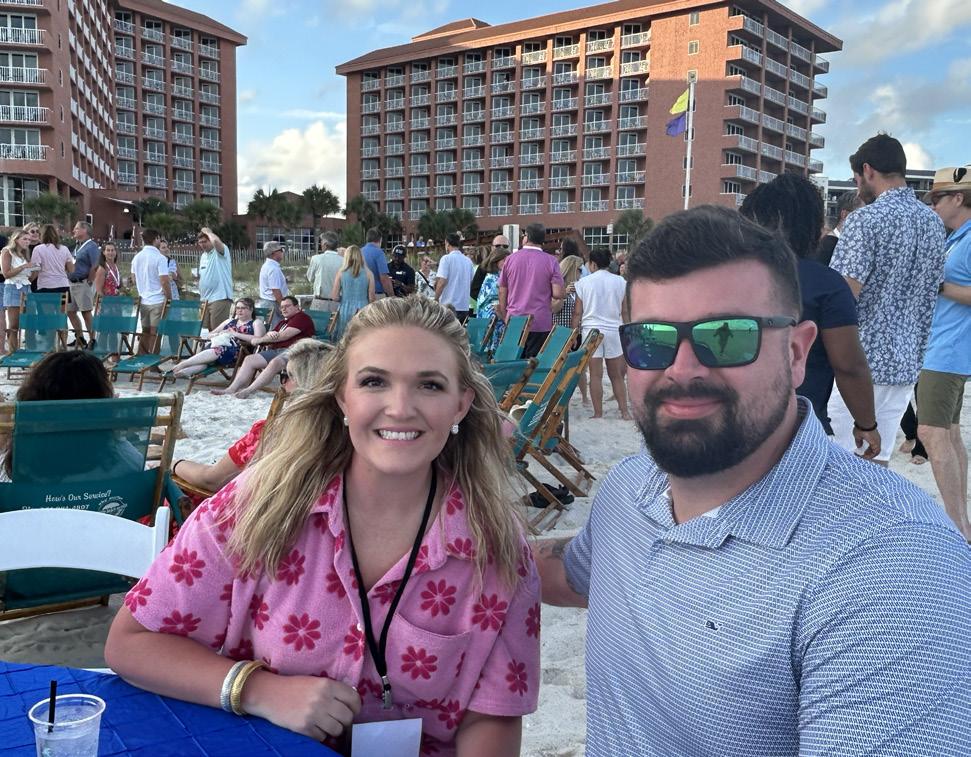
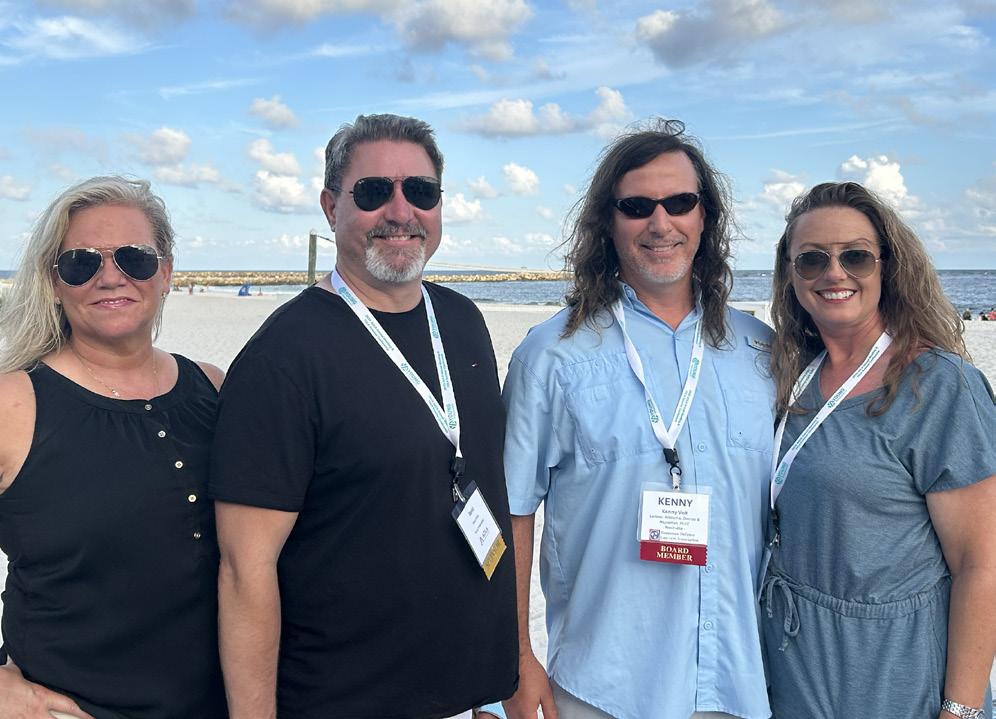
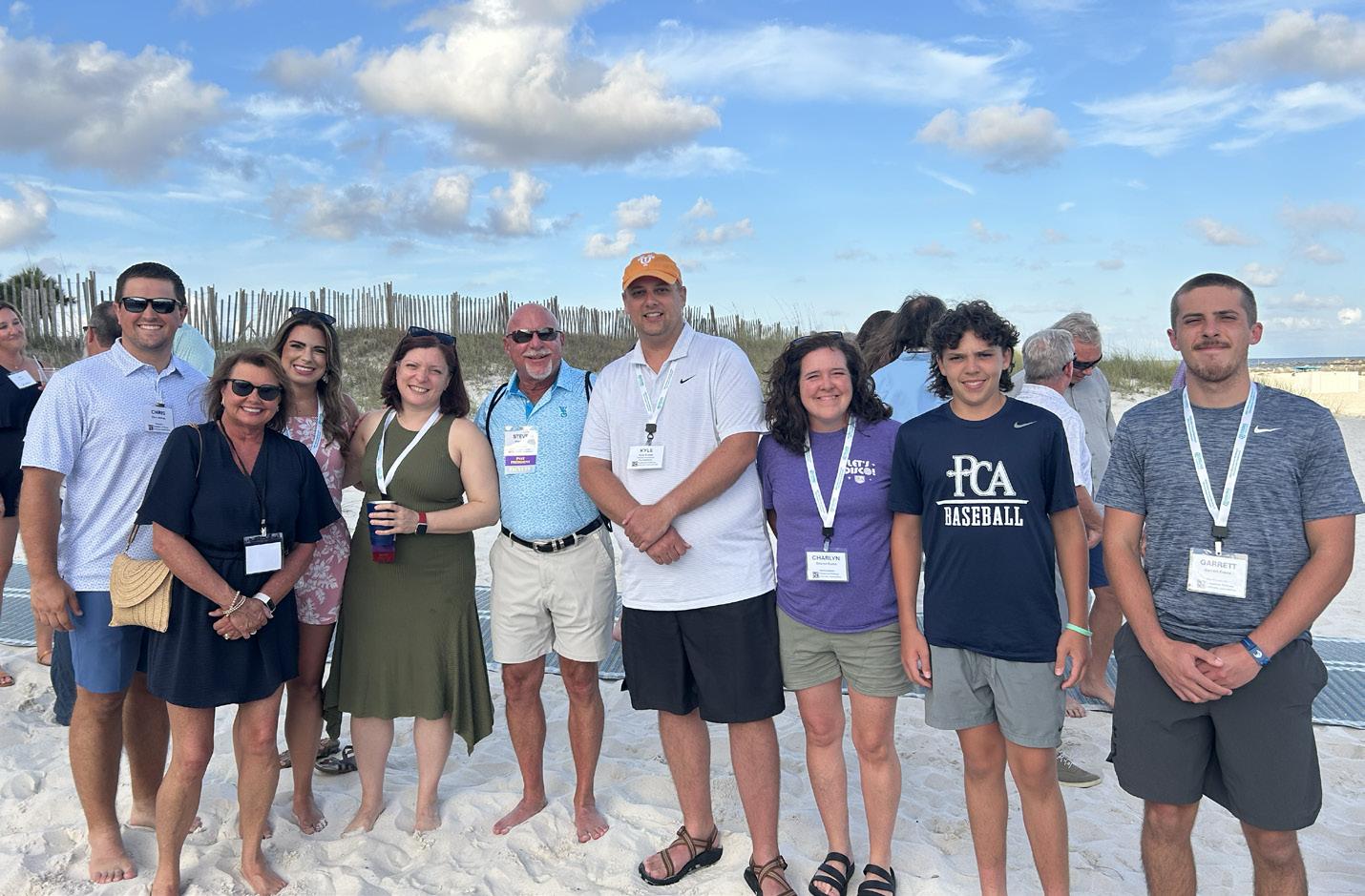




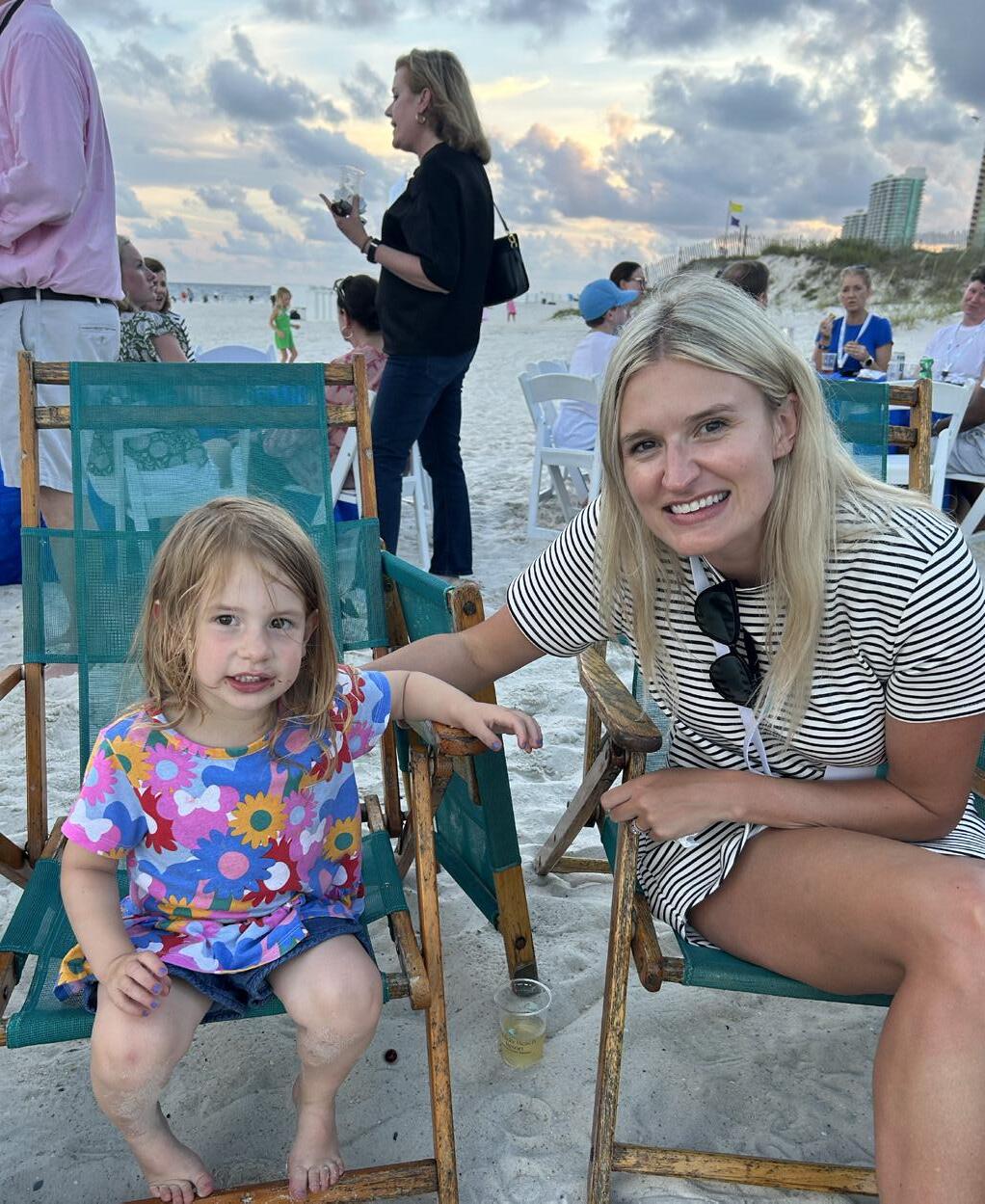


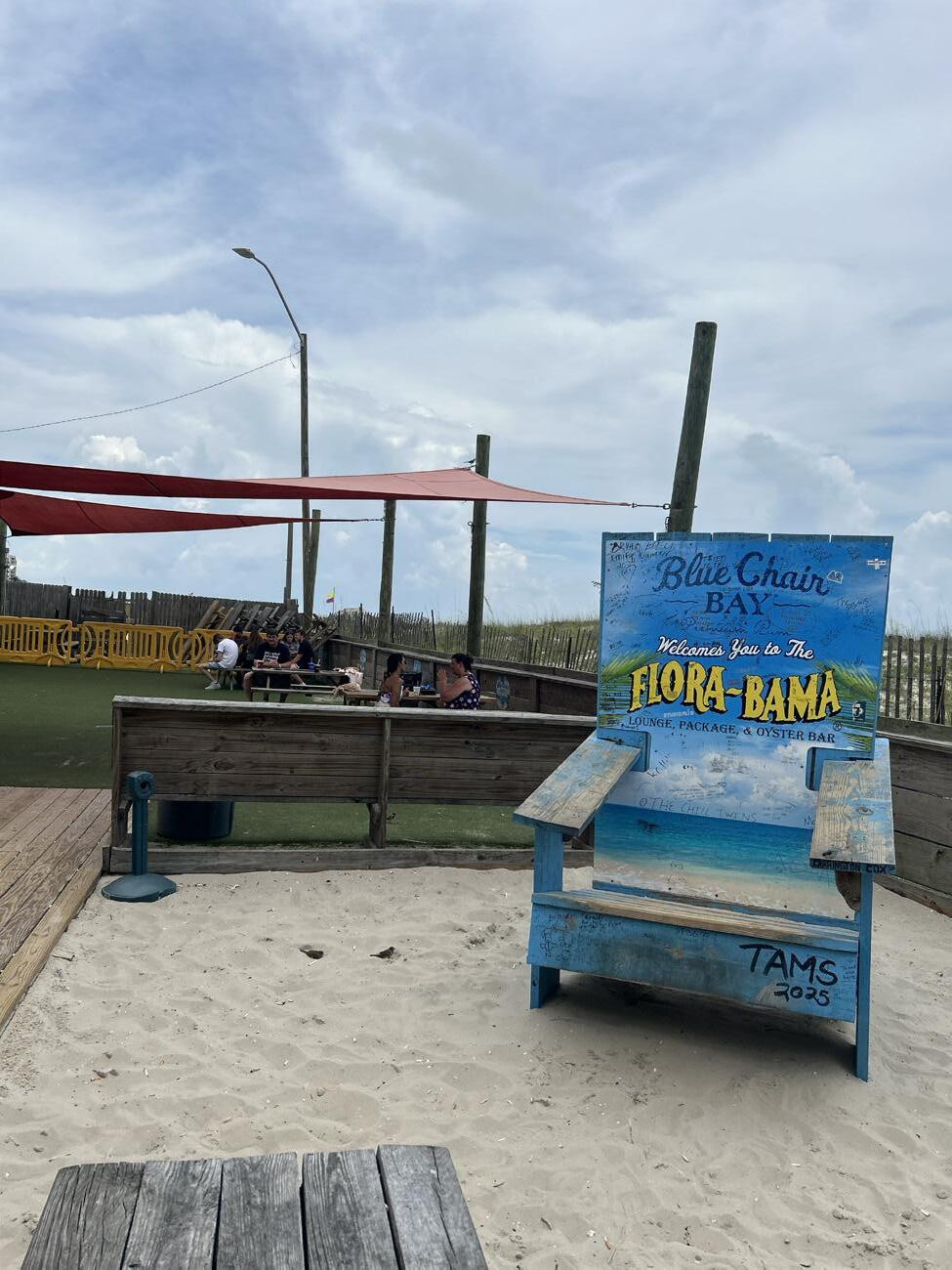
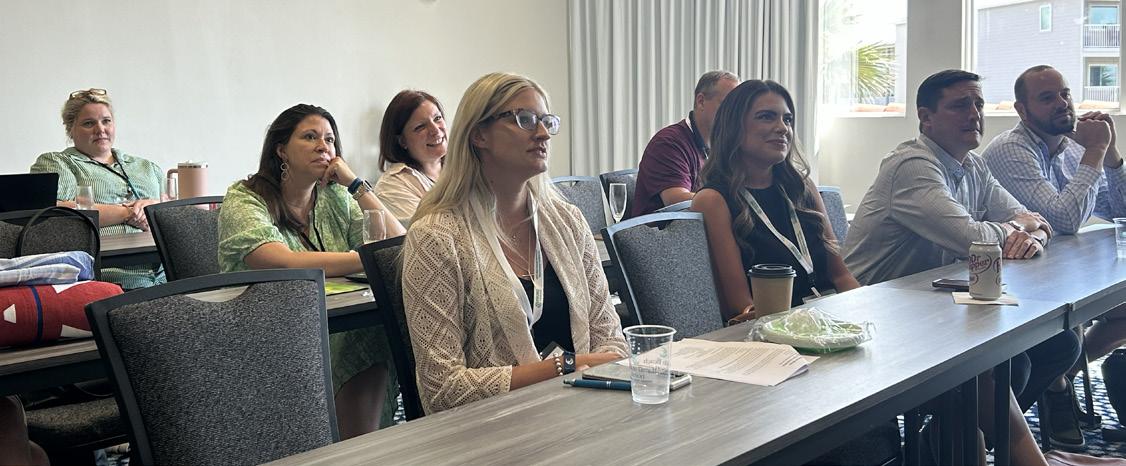
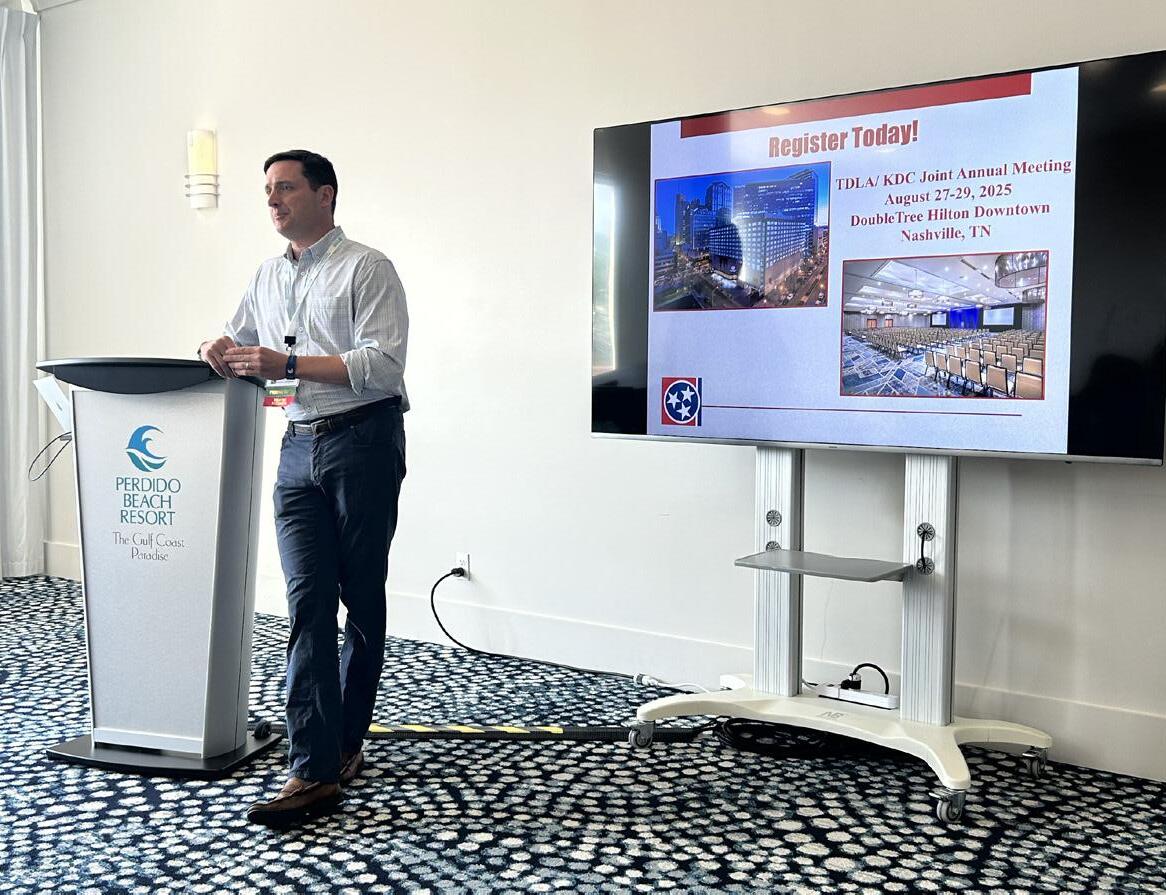

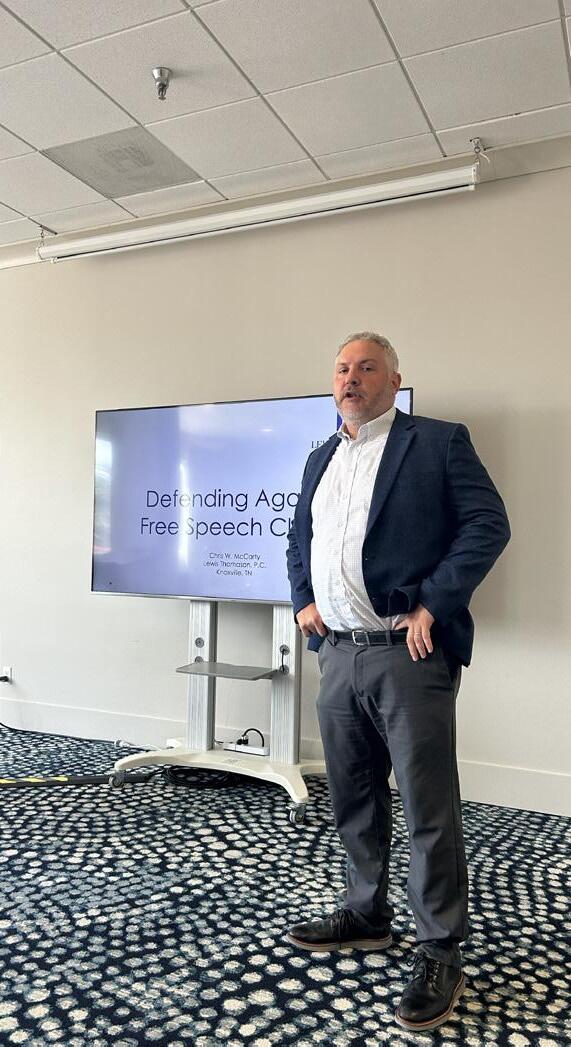

[11] Id. at 05.
[12] Id.
[13] Id.
[14] Id.
[15] National Task Force on Lawyer WellBeing, supra at 54.
[16] Austin, supra at 942.
[17] National Task Force on Lawyer WellBeing, supra at 53-54.
[18] Lyda Creus Molanphy, Mindful Lawyering: Incorporating Mindfulness into the American Bar Association’s Model Rules of Professional Conduct, 15 st. mary’s j. on legal malpractice & ethics 162, 169 (2025).
[19] Id. at 184.
[20] Austin, supra at 971.
[21] Deloitte Global Talent, Millennials and Generation Z – making mental health at work a priority (June 2021), https://www2.deloitte. com/content/dam/Deloitte/global/Documents/ About-Deloitte/gx-deloitte-2021-mental-healthmillennials-white-paper.pdf
[22] De Neve, et al., supra at 6.
[23] De Neve, et al., supra at 7.
[24] National Task Force on Lawyer WellBeing, supra at 43.
[25] California Rule of Professional Conduct 1.1 (Competence) (effective 2018 through present); California Rule of Professional Conduct 3-110 (Failing to Act Competently) (effective 1989 through 2018) (emphasis added).
[26] Vermont Rule of Professional Conduct 1.1, comment 9 (emphasis added).
[27] Utah Rule of Professional Conduct 1.1, comment 9.
[28] Aric Short, Putting the Lawyer First: Framing Well-Being in Law as an Ethical Dilemma, 75 Mercer Law Review 1409, 143031 (2024).
[29] Lawlor, supra at 186.
[30] Lawlor, supra at 187, quoting American Bar Association, ABA Standards and Rules of Procedure for Approval of Law Schools 20232024, Ch. 5, Std. 303, Interpretation 303-5.
[31] Austin, supra at 967-68.
continued from page 5
of September 2025. Eligible TDLA members follow this link to register: https://www.dri.org/membership/ sldo-pilot
If you join using the free membership program, please include my name in the application so DRI will know that your Tennessee DRI State Rep referred you!
TDLA is proud to be a part of DRI, and we hope our members will take advantage of the opportunities to get involved in both TDLA and DRI. If you have any questions about DRI and how to make the most of your membership, please feel free to send me an email: h.lowe@ farmersinsurance.com.
Best,
Hannah Lowe
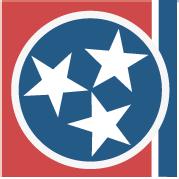
I am a defense attorney and first time member of TDLA and I am a member of DRI.*
In-House Counsel (as defin ed below,** please check if applicable) Young Lawyer (admitte d to the bar for ten years or less)
I am not a member of DRI, but I am interested in a DRI membership.
Male Fe mal e N am e
Tit le Firm
Addr es s
Cit y St at e/Prov i nce
Z ip/Pos t Code Cou nt ry
Te le p h o n e Fa x
Pr i mar y area(s) of p r ac ti c e
A s u bs cr ip ti o n to the TDLA Newsletter is i n c lu d ed in the an n u al d u es .
Pl e ase note: In d i vidual Membership is not transferable.
First time a dmi tted to the Ba r in in
s tate/p rovi nce m on t h / day / y e ar
b a r nu mbe r
Number of years licensed to practice in Tennessee.
< 5 years
5 – 15 years
Over 15 years
I n o rder to maximize the educational and networking opportunities for its members, TDLA has established sections which focus more narrowly on specific practice areas. The list of these appears below. TDLA believes that belonging to one or more sections greatly enhances the value of your membership in TDLA and we encourage you to join those that interest you. Membership in a section is free of charge, requires no additional commitment or responsibility on your part, and you may belong to as many sections as you wish. Please indicate which sections you wish to join by marking the corresponding box(es) below.
Nu mber
O p t i o n a l
& Workers Compensation Section
Negligence &
Torts Section Young Lawyers Section of a ttorne ys in your f irm
TDLA is committed to the principle of diversity in its membership and leadership. Accordingly, applicants are invited to indicate which one of the following may best describe them:
Ref err ed by
Name of ref erri ng TDLA M ember atto rn ey (if a ppl i c abl e)
of
i
I devote 51% or more of my professional time to the representation of business, insurance companies or their insureds, associations or governmental entities in civil litigation. I have read the above and hereby make application for individual membership.
DRI = Defens e Researc

I am a first-time DRI member and I am a member of my SLDO. Note: DRI will contact your SLDO to confirm your membership with them before processing. Categories for individual membership in DRI:
Defense Attorney—$285 USD/year
I n-House Counsel—$285 USD/year (as defined below ***)
G overnment Attorney—$160 USD/year
A subscription to For The Defense is included in the annual dues for ALL price categories. Please note: Individual membership is not transferable. If you have any questions, contact Customer Service at 312.795.1101.
Young Lawyer—$165 USD/year (admitted to the Bar for five years or less). Young Lawyers free registration for one seminar is valid for as long as you are a member of the Young Lawyers Committee.
National Foundation for Judicial Excellence (NFJE) Contribution—$35 USD/year
Fax Email
Primary area(s) of practice
First time admitted to the Bar in in
state/province month/day/year
. bar number
I am a member of a state or local defense organization.
Yes No
Name of organization
I am an armed services veteran.
DRI encourages you to join committees to greatly enhance the value of your membership. Just check the boxes (no limit) on the Join a Committee form, last page.
DRI is committed to the principle of diversity in its membership and leadership. Accordingly, applicants are invited to indicate which of the following may best describe them:
Referred by
Name of referring DRI Member attorney (if applicable)
African American A sian American Hispanic N ative American Caucasian Multi-Racial LGBT Other
Date of birth MM/DD/YY
I devote a substantial portion of my professional time to the representation of business, insurance companies or their insureds, associations or governmental entities in civil litigation. I have read the above and hereby make application for individual membership.
I authorize DRI to send me announcements via mail, facsimile and phone about its programs, services and all other offerings that may be of interest to me or my colleagues. I also consent to receipt of notices from DRI in electronic form, including email. I understand I have the right to withdraw my consent at any time.
Signature
Date
All applications must be signed and dated.
*S LDO=State and Local Defense Organization
** N on-transferable and expires 18 months after join date; excludes the Annual Meeting.
* ** In-house counsel is defined as a licensed attorney who is employed exclusively by a corporate or other private sector organization, for the purpose of providing legal representation and counsel only to that corporation, its a ffi liates and subsidiaries.
† S ee reverse side for NFJE description and state disclosure information.
†† S ee reverse side for Auto Pay Terms and Conditions.
Please remit payment to: DRI 72225 Eagle Way Chicago, IL 60678-7252
| dri.org
My c heck for $ (USD) is enclosed.
Pl ease bill me. (Your membership will be inactive until DRI receives payment.)
Pl ease charge my credit card. ( Provide card information below.)
E nroll me in Dues Auto Pay.†† (You must check this box and sign below to be officially enrolled. By signing, you agree to Terms and Conditions on reverse side. Provide card information below.)
Authorized signature
NAME
Adrienne Anderson
Robert L. Arrington
Gail
Kevin Baltz
Allen S. Blair
John T. Blankenship
Hon. George H. Brown Jr.
John D. Burleson
John R. Cannon Jr.
Fred Collins
Paul T. DeHoff
Mary Beth Hagan
Paul D. Hogan Jr.
Hon. Janice M. Holder (Ret.)
Dana C. Holloway
Barry L. Howard
Loys A. “Trey” Jordan III
Hayden Lait
Mark S. LeVan
James H. London

PHONE (865) 249-8011 (423) 723-0402 (615) 254-1877 (615) 726-5566 (901) 820-4347 (615) 627-9390 (901) 523-2930 (713) 426-8114 (901) 328-8227 (731) 686-8355 (615) 631-9729 (615) 546-4070 (865) 546-2200 (901) 527-3765 (865) 643-8720 (888) 305-3553 (901) 526-0606 (901) 230-4990 (615) 843-0308 (865) 637-0203
H. Richard Marcus
Minton P.
David W. Noblit
Robert P. Noell
Joshua G. Offutt
Jerry O. Potter
Sarah Y. Sheppeard
William D. Vines III
Howard H. Vogel
Jack Waddey
Jeffrey M. Ward
Ronald D. Wells
Kreis White PHONE
(615) 651-6775
(423) 757-0414 (901) 312-1640 (423) 265-0214 (865) 215-1023 (615) 802-8912 (901) 525-1455 (615) 815-0472 (865) 546-4646 (615) 256-1280 (615) 259-1366 (865) 546-8030 (931) 252-9123 (865) 637-3531 (865) 546-7190 (615) 973-2630 (423) 639-6811 (423) 756-5051 (615) 309-0400

August 27 - 29, 2025
DoubleTree by Hilton Downtown Nashville
Nashville, Tennessee